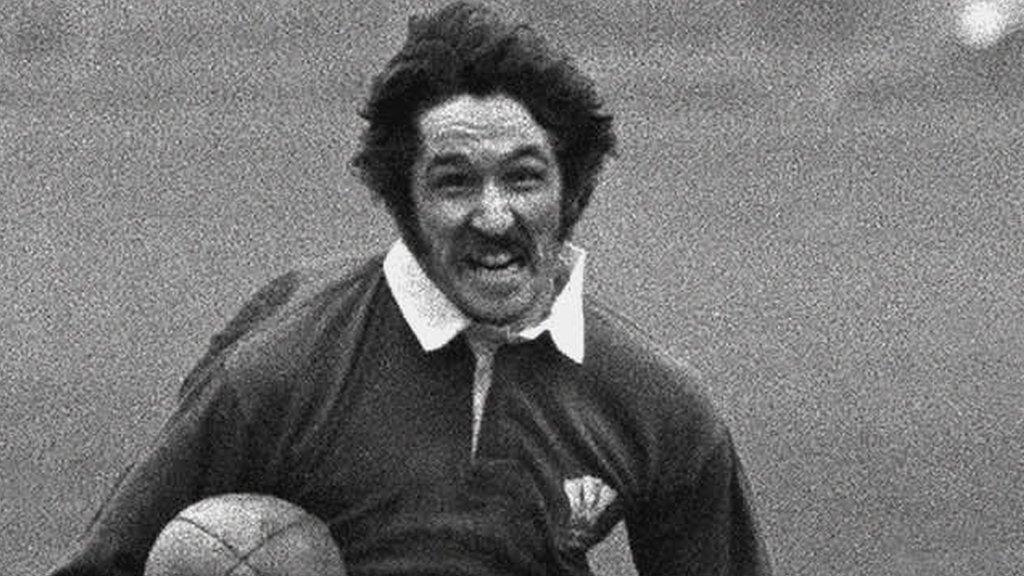Six Nations: How Wales & Ireland became regular title contenders
- Published
- comments
Wales v Ireland - the rivalry
Six Nations 2015: Wales v Ireland |
|---|
Venue: Millennium Stadium, Cardiff Date: 14 March Kick-off: 14:30 GMT |
Coverage: Live on BBC One, HD, Red Button, S4C, BBC Radio Wales, Radio Cymru, Radio Ulster, Radio 5 live, 5 live sports extra, online, mobile, the BBC Sport app and Connected TV. |
Jonathan Davies predicts Wales versus Ireland in Cardiff on Saturday will be "one hell of a game".
But asked if Six Nations champions and current table-toppers Ireland play rugby he likes to watch, Davies chuckles and admits all this bish, bash, bosh is not exactly his thing.
"It does sadden me a little bit," says the former Wales fly-half, who wowed the Arms Park faithful in the 1980s, external with his visionary brand of attacking artistry.
"Ireland apply pressure, force mistakes and Johnny Sexton kicks penalties. It's a similar philosophy to American football: they don't take chances, don't look to offload a lot because they want to keep mistakes to a minimum. And if they don't make yardage, they kick it. And Ireland's kicking game is exceptional.
"Rugby is an entertainment industry and I'd like to see more exciting rugby. But I'm not a coach and I'm not in a position where my career depends on the result. International rugby is all about playing to your strengths to get the right results."
Last week, New Zealand head coach Steve Hansen said rugby union was in danger of becoming boring, external and turning fans off. But not if you're winning, judging by the speed at which tickets sell for Ireland internationals in Dublin.
For many years, the fixture between Wales and Ireland was a sideshow. In the last 14 years of the Five Nations, Wales won one title outright, in 1994. Ireland won none and were often reduced to scrapping over the Wooden Spoon - sometimes with Wales.

The early years of the Six Nations were not much different. Between 2000 and 2007, France won four Six Nations titles, England three and Wales one. Remember the headlines about France and England jumping ship in order to get some proper competition against the southern hemisphere nations?
But between 2008 and 2014, Wales won three titles and Ireland two, with three Grand Slams between them. France and England, meanwhile, won one title each.
A once rather cosy Celtic rivalry has developed into a championship-defining clash, at least most seasons. Last year Ireland blitzed Wales 26-3 in Dublin, a result that ultimately won them the title over England on points difference.
In 2012, Wales stole the game from Ireland on the opening weekend at the Aviva, before going on to win their second Grand Slam in five years. "It's like playing against your brother in the backyard," says Wales head coach Warren Gatland. You want to beat him as often as you can and Saturday will be no different."
Wales v Ireland classics: Jonathan Davies 2012
Gatland's direct brand of rugby was nicknamed 'Warrenball', external by his detractors. Earlier this week, an Irish newspaper suggested the rugby played by its national team should be called 'Joeball',, external in reference to head coach Joe Schmidt.
Meanwhile, former Scotland, Leinster and Ulster coach Matt Williams used his column in the Irish Times, external to bemoan Schmidt's "ultra-conservative game-plan". "I admire the thinking process," said Aussie Williams, "but I don't like watching the outcome."
Williams used statistical evidence to bolster his argument, pointing out that table-topping Ireland were last or second last in the Championship in terms of tries scored, metres gained, line-breaks and offloads. "It's a damning statement on the current state of rugby's negative mind-set," he continued.
But given Ireland have won 10 Tests on the trot, are still on target for successive Six Nations titles and knocked off a couple of the southern hemisphere's big three last autumn, any praise of Schmidt that sounds begrudging is surprising.
"It's crass to criticise how Ireland are playing at this point," says former Ireland and Lions flanker Phillip Matthews. "Joe Schmidt has established a way of closing out games that in the past we might have lost.
"But I don't think this is the way it's always going to be. Joe will constantly evolve and, in time, introduce a more creative side, so that other teams won't always know what Ireland are going to do. I'm a huge fan."
Ireland are Wales' biggest rivals - Williams
In effect, Schmidt has replicated his fellow New Zealander Gatland. When Wales won the Grand Slam in 2005,, external securing the feat with victory over Ireland in Cardiff, they did so playing broad, expansive rugby. But it was a brand of rugby that was already going out of fashion and Wales were ignominiously dumped out of the 2007 World Cup in the group stages.
Gatland, who took over later that same year, sought to instil realism, basing his style on the players he had at his disposal, and their strengths and weaknesses, rather than some romantic Welsh ideal that harked back to the 1970s.
Schmidt has done similar, although the fact Irish rugby's romantic ideal is buried even further in the past has allowed him to be even more ruthless in the implementation of his methods.
Matthews also believes Gatland's Wales and Schmidt's Ireland, whose players are drawn from small pools in regional and provincial rugby, have benefited from a fostering of a club ethos on the international stage.
"England, and especially France, haven't been able to achieve that yet," says Matthews. "Wales and Ireland teams are comfortable together, they're clear about what they want to do, so in recent years they've usually played with a cohesion and purpose that is more akin to a club side. There's no ambiguity."
Ireland number eight Jamie Heaslip recently said that his provincial side Leinster, who won two Heineken Cups under Schmidt, are "less robotic", external under Schmidt's successor, Australian Matt O'Connor. Leinster, said Heaslip, are playing the way "we want to play".
If Schmidt read Heaslip's comments he probably would have approved: playing less robotic rugby and the way they want to play has seen Leinster slip to fifth in the Pro12 table this season, although they are quarter-finalists in the Rugby Champions Cup.
And you sense Schmidt would like tinkering with robots - manual in one hand, screwdriver in the other, making them do exactly as he wanted.
The way rugby is played saddens a lot of people, not just Jonathan Davies. But as fans of Wales and Ireland will testify, there's nothing sad about a bit of robotics, as long as it means you're winning.
Jonathan Davies and Phillip Matthews will be part of BBC Sport's commentary team for Wales v Ireland on Saturday. Live coverage on BBC One, the BBC Sport website, app and Connected TVs from 1400 GMT.
- Published12 March 2015
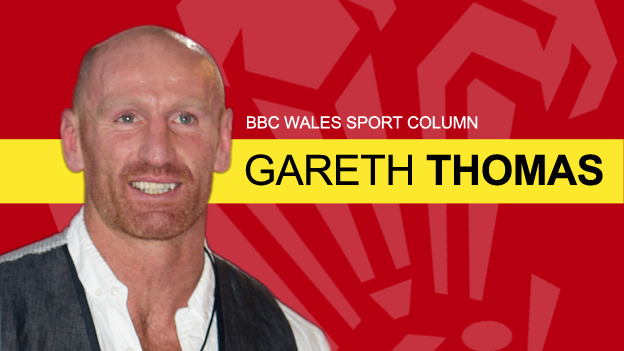
- Published11 March 2015
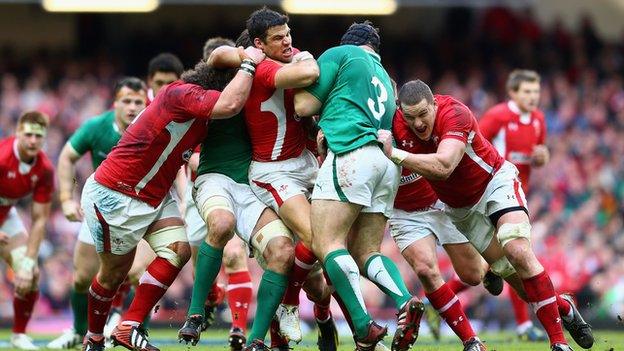
- Published11 February 2015
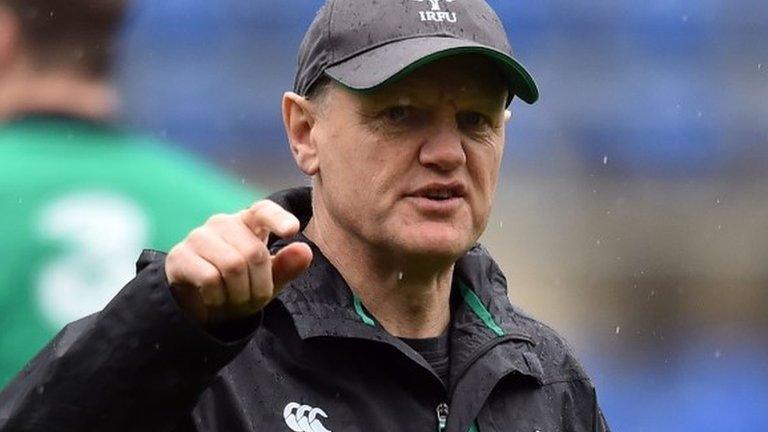
- Published6 February 2014
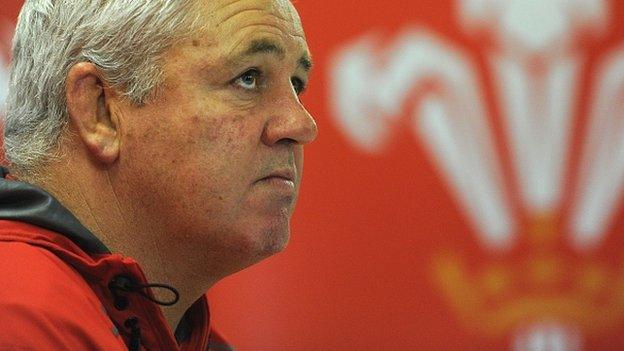
- Published11 March 2015
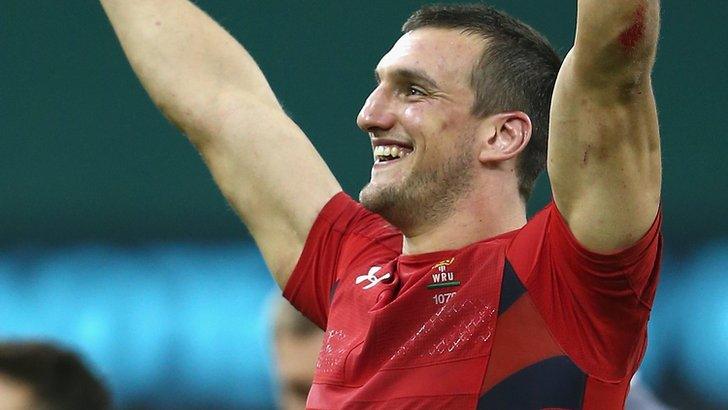
- Published11 March 2015
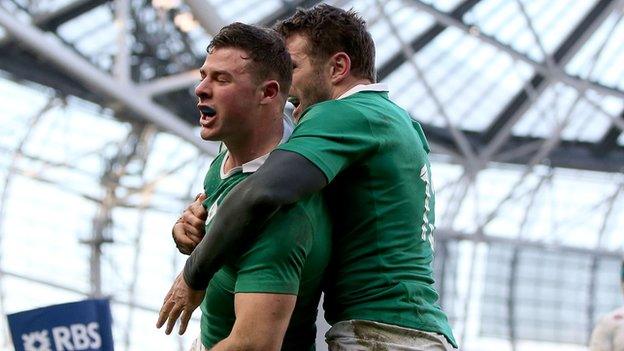
- Published14 September 2016

- Published25 August 2011
